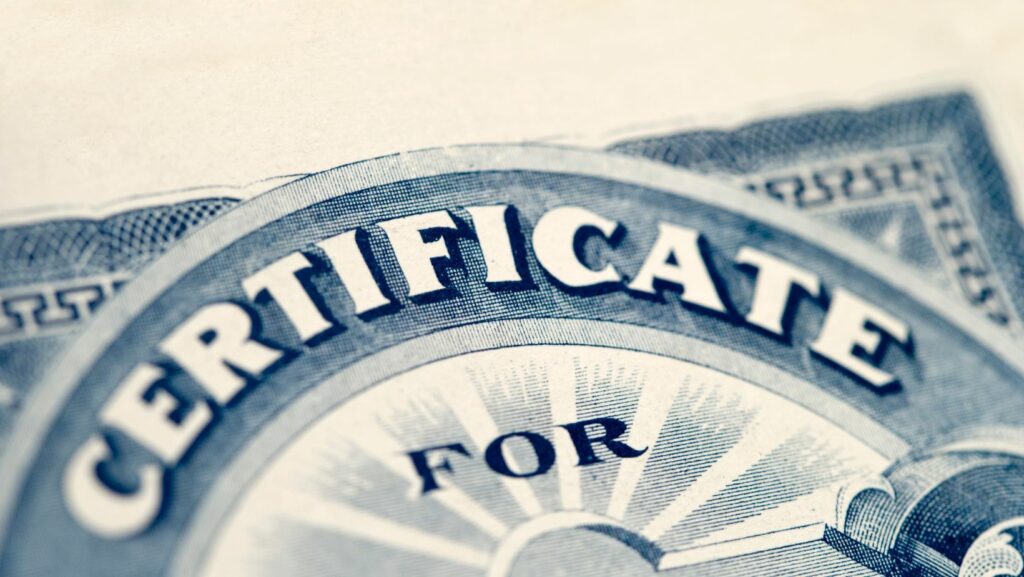Approaching your 30s is a significant milestone, but it also comes with financial responsibilities and challenges that can make or break your future.
In this article, we will explore practical strategies to avoid common money mistakes that many individuals face during this crucial decade. From saving for retirement to managing debt and investments, we’ll delve into the key steps you can take to secure your financial well-being.
Navigating your finances in your 30s can be daunting, but with the right knowledge and habits, you can set yourself up for long-term success. By being proactive and avoiding common pitfalls, you can build a strong foundation for a stable and prosperous future. So, whether you’re looking to buy a home, start a family, or advance in your career, understanding how to manage your money wisely is essential. Let’s join the futbol en vivo team in looking at strategies that will help you manage your finances as effectively as possible at 30.
Understanding Common Money Mistakes in Your 30s
The 30s often mark a transitional period where individuals face numerous financial decisions that can have lasting impacts. One of the most common mistakes is underestimating the importance of financial planning. Many individuals enter this decade with newfound responsibilities, such as purchasing a home, starting a family, or investing in their careers. These responsibilities can lead to impulsive financial decisions that may not align with long-term goals. Recognizing these pitfalls is crucial for making informed choices.
Additionally, many people in their 30s fall into the trap of lifestyle inflation. As income increases, so does spending, often leading to a cycle where individuals live paycheck to paycheck despite earning a higher salary. This mentality can prevent you from saving adequately for emergencies, retirement, or significant investments. It’s essential to maintain a balanced perspective on spending and ensure that your lifestyle choices do not compromise your financial stability.
Another prevalent mistake is neglecting to prioritize debts. Whether it’s student loans, credit card debt, or personal loans, failing to manage these obligations effectively can lead to financial strain. In your 30s, it’s particularly important to create a strategy to pay down debt while also saving and investing. Acknowledging these common money mistakes will empower you to take control of your financial future and make sound decisions moving forward.
Importance of Budgeting and Tracking Expenses
Budgeting serves as the cornerstone of effective financial management in your 30s. Creating a realistic budget helps you understand where your money is going each month, allowing you to allocate funds towards savings, investments, and necessary expenses. By tracking your expenses diligently, you can identify areas where you can cut back and redirect those funds toward achieving your financial goals. This practice not only enhances your awareness of spending habits but also fosters discipline in managing your finances.
Moreover, utilizing budgeting tools and apps can simplify the process and make it more efficient. Many modern tools offer features that track expenses automatically, categorize spending, and even provide insights into your financial trends. By leveraging technology, you can maintain a clear overview of your financial situation, making it easier to stay on top of your budget. Regularly revisiting your budget also allows you to adapt to changing circumstances, such as a salary increase or unexpected expenses.
It’s important to remember that budgeting is not merely about restricting yourself; it’s about making informed choices that align with your financial aspirations. Setting aside funds for fun activities or leisure can help you enjoy life while still prioritizing your financial health. By maintaining a balanced approach to budgeting, you can cultivate a positive relationship with your finances and work towards achieving your long-term goals.
Building an Emergency Fund and Saving for Retirement
An emergency fund is a critical component of sound financial planning. Life can be unpredictable, and having a safety net ensures that you can handle unexpected expenses without resorting to credit cards or loans. Aim to save at least three to six months’ worth of living expenses in a dedicated savings account. This fund should be easily accessible, allowing you to cover urgent costs such as medical emergencies or unexpected car repairs without derailing your financial stability.
In tandem with building an emergency fund, it’s vital to prioritize retirement savings. Many individuals in their 30s underestimate the importance of starting to save for retirement early. The earlier you begin contributing to retirement accounts like a 401(k) or an IRA, the more time your money has to grow through compound interest. Even if you can only contribute a small amount initially, starting now will yield significant benefits in the long run, especially as your salary increases over time.
Automating your savings can be an effective strategy to ensure you consistently contribute to both your emergency fund and retirement accounts. Set up automatic transfers from your checking account to your savings and retirement accounts, making it easier to prioritize these essential savings goals. By treating savings as a non-negotiable expense, you can establish a strong financial foundation that will serve you well into the future.
Investing Wisely in Your 30s
Investing can be a powerful tool for building wealth and securing your financial future. Your 30s provide a unique opportunity to harness the benefits of long-term investment strategies. One common mistake is avoiding investment altogether due to fear of market volatility. However, it’s essential to recognize that investing is a critical component of wealth accumulation, and the earlier you start, the greater the potential for growth.

Diversification is a key principle of investing that can help you manage risk. Instead of putting all your money into a single asset or market, consider spreading your investments across various asset classes, such as stocks, bonds, and real estate. This approach can help safeguard your portfolio against significant losses while still allowing for growth potential. Additionally, consider incorporating low-cost index funds or exchange-traded funds (ETFs) into your investment strategy, as they typically have lower fees and provide broad market exposure.
Furthermore, it’s essential to stay informed about your investment options and continuously educate yourself on market trends. The world of investing is constantly evolving, and being proactive in your knowledge can help you make informed decisions. Consider consulting with a financial advisor who can guide you in creating a tailored investment strategy that aligns with your goals, risk tolerance, and time horizon. Investing wisely in your 30s can set the stage for a secure financial future.
Avoiding Debt and Managing Loans Effectively
Managing debt is a crucial aspect of financial health in your 30s. Many individuals may find themselves accumulating debt through student loans, credit cards, or personal loans. One of the most effective strategies for managing debt is to develop a repayment plan. Prioritize high-interest debt first, as it can quickly accumulate and hinder your financial progress. By focusing on paying off high-interest debts, you can free up more funds for savings and investments in the long run.
Additionally, be cautious about taking on new debt. While certain loans may be necessary for big purchases, such as a home or education, it’s essential to approach borrowing with a clear understanding of your ability to repay. Avoid lifestyle inflation that leads to unnecessary credit card debt; instead, live within your means and focus on building your financial reserves. This prudent approach can help you maintain financial stability while avoiding the stress that comes with excessive debt.
Lastly, consider consolidating or refinancing existing loans if it makes financial sense. This can help lower your interest rates and simplify your monthly payments. However, be sure to read the fine print and understand any fees associated with these options. By taking a proactive stance on debt management, you can significantly improve your financial situation and pave the way for a brighter financial future.
Making Smart Financial Decisions for Major Life Events
Your 30s often bring significant life changes, such as marriage, starting a family, or purchasing a home. Each of these milestones involves financial implications that require careful consideration. For instance, if you plan to buy a home, it’s essential to assess your financial readiness, including your credit score, debt-to-income ratio, and savings for a down payment. Rushing into homeownership without proper financial planning can lead to unnecessary stress and financial strain.
Additionally, if you’re considering starting a family, it’s vital to evaluate the associated costs, such as childcare, education, and healthcare. Creating a family budget that accommodates these expenses will help you prepare for the financial responsibilities that come with raising children. Planning ahead allows you to build a solid foundation for your family’s future while minimizing the potential for financial stress.
Moreover, if you’re getting married, discuss financial expectations openly with your partner. Establishing a shared financial vision and discussing how to manage expenses, debts, and savings together can prevent misunderstandings down the line. By making informed financial decisions for these major life events, you can set yourself up for a stable and secure future.
Seeking Professional Financial Advice in Your 30s
While self-education is important, seeking professional financial advice can provide invaluable insights and personalized guidance. A financial advisor can help you develop a comprehensive financial plan tailored to your unique circumstances, goals, and risk tolerance. They can assist you in navigating complex financial decisions, such as investment strategies, retirement planning, and tax optimization.
When choosing a financial advisor, it’s crucial to consider their qualifications and expertise. Look for professionals with a strong track record, relevant certifications, and a fiduciary duty to act in your best interest. A good advisor will not only offer investment advice but also help you create a holistic financial strategy that encompasses budgeting, debt management, and savings goals. Establishing a relationship with a trusted advisor can significantly enhance your financial outlook.
Moreover, don’t hesitate to revisit your financial plan regularly. As your life circumstances change, your financial needs and goals may evolve as well. Keeping an open line of communication with your financial advisor ensures that your strategy remains aligned with your current situation. By seeking professional advice, you can confidently navigate the complexities of financial planning in your 30s and beyond.
Tools and Resources for Financial Planning in Your 30s
In today’s digital age, a plethora of tools and resources are available to assist you in managing your finances effectively. Budgeting apps, investment platforms, and financial education websites can provide valuable support in achieving your financial goals. For instance, apps like Mint and YNAB (You Need A Budget) can help you track expenses, set budgets, and monitor your financial progress in real-time.

Furthermore, consider utilizing investment platforms that offer user-friendly interfaces and educational resources. Many platforms, such as Robinhood or Betterment, allow you to start investing with low fees and provide insights into market trends. This accessibility empowers you to take charge of your investments and make informed decisions without needing extensive financial expertise.
Additionally, don’t underestimate the power of financial education. Books, podcasts, and online courses can provide a wealth of knowledge on personal finance topics. Engaging with these resources can enhance your understanding of financial concepts and equip you with the tools necessary to make sound financial decisions. By leveraging these tools and resources, you can take proactive steps towards securing your financial future in your 30s.
Conclusion on Securing Your Financial Future in Your 30s
The journey through your 30s is a pivotal time for establishing a secure financial future. By understanding common money mistakes and implementing effective strategies, you can navigate this decade with confidence. Prioritizing budgeting, building an emergency fund, investing wisely, and managing debt are all essential components of a robust financial plan.
It’s crucial to remember that financial success is not solely about accumulating wealth; it’s about creating a sustainable lifestyle that aligns with your values and goals. By making informed decisions during this transformative decade, you can build a solid financial foundation that supports your aspirations, whether that involves homeownership, education, or family planning.
As you move forward, consider seeking professional advice and leveraging modern tools to enhance your financial management skills. With the right approach and proactive mindset, you can avoid common pitfalls and secure a prosperous financial future. Your 30s are just the beginning—embrace this opportunity to shape your financial destiny and enjoy the journey ahead.



